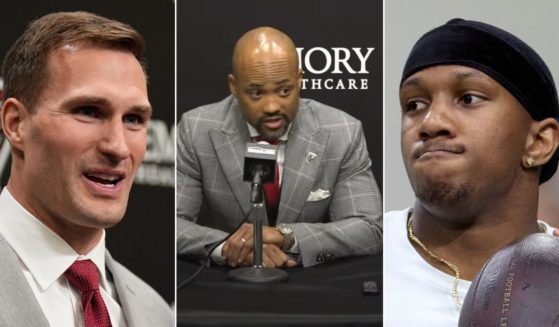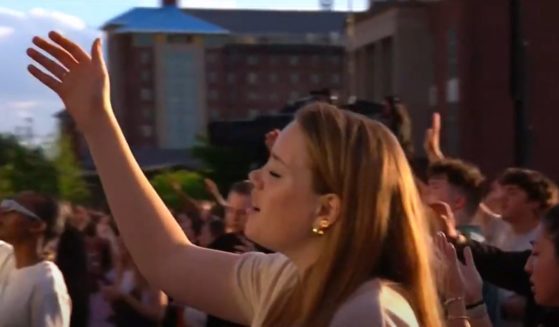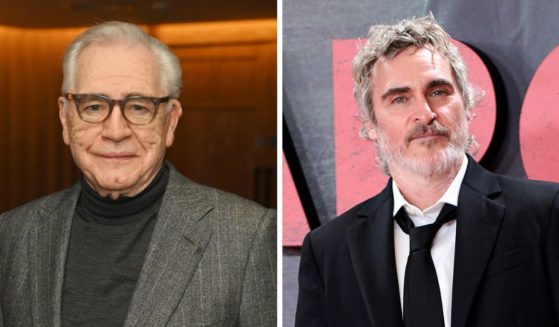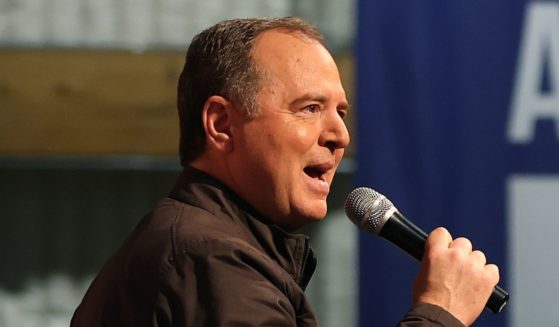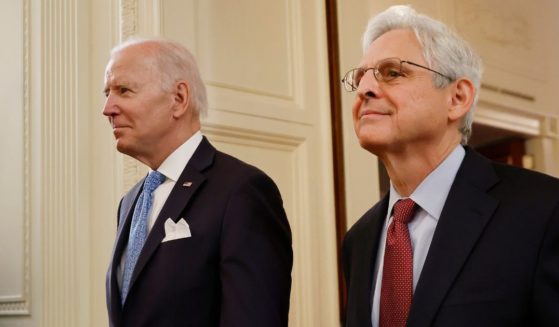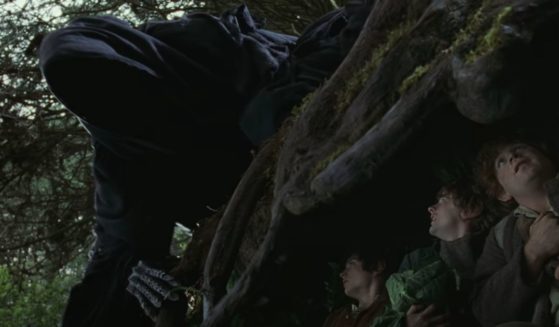Watch: Democratic Chairwoman Faced with Tough Question, Decides to Walk Into Traffic Instead
If someone tells you he or she would rather walk into oncoming traffic than do something, chances are they’re being hyperbolic. For New York state Assemblywoman Rodneyse Bichotte Hermelyn, not so much.
Hermelyn is the chairwoman of the Brooklyn Democratic Party in New York City, which is currently beset by a patronage and nepotism scandal regarding the city’s Board of Elections.
While the BOE in NYC is never a particularly functional organ of city government — witness the ranked-choice voting debacle in this year’s mayoral primary — it’s now engulfed in a controversy regarding who’s being appointed to plum positions in the BOE hierarchy.
This is hitting both parties considering that county leaders for the Democrats and GOP are the ones who have sway over the patronage and how elections are run.
Sources who talked to New York City cable news outlet NY1 said “the top positions are divided up among party leadership. So, behind the scenes, the top-level jobs with the highest pay are doled out to certain county leaders and organizations to appoint.”
That makes Hermelyn one of the key figures at the center of this scandal, given her position.
According to NY1’s Courtney Gross, Hermelyn initially agreed to give an interview but backed out. Gross decided to pressure the assemblywoman on the matter and followed her to a fundraiser.
Hermelyn then decided to split:
.@bkdems chair @AMBichotte was not interested in talking to us about patronage and nepotism at the @BOENYC. We’ll have more tonight on @InsideCityHall in the second part of our series “Ballot Blunders.” pic.twitter.com/J9Ps8cmOXu
— Courtney Gross (@courtneycgross) October 5, 2021
I’m guessing she didn’t leave because they overcooked the yolk on the poached eggs. (Also, nice mask, assemblywoman.)
According to a Tuesday article by Gross at NY1, Hermelyn crossed Flatbush Avenue in Brooklyn. For the uninitiated, Flatbush is one of the major north/south arteries in the borough; darting into the middle of it to avoid an interview isn’t just a bad look, it’s dangerous. She’d apparently rather risk getting hit by a car than answering a reporter’s questions.
Hermelyn, in a statement, cited “unprofessional behavior and reportorial tactics” regarding her decision to flee the interview and insinuated Gross’ allegations of patronage were tinged with racism.
“Courtney Gross questioned if I was related to a black Board of Elections Commissioner with a similar name based on an unfounded tip,” she said, according to the Daily Mail, claiming a “simple fact-check would have confirmed that we are not related.”
“Still, she continued her pursuit of the false story. This agitating behavior perturbed me, and when I refused to engage in an interview at the breakfast event for that reason, she continued to follow and question me, then filmed me leaving.”
And then came the racism allegation: “Although Courtney may not have been aware of it, black people still experience the ‘you all look alike to me’ portrayal, often with harrowing consequences. I advise that Courtney take cultural competency training classes.”
Twenty bucks says the person teaching the cultural competency training classes is a patronage hire.
NY1 wasn’t buying Hermelyn’s explanation, either, saying on Twitter that “Courtney is a respected journalist with a long history of covering issues important to New Yorkers” and that “NY1 rejects any implication that Courtney’s reporting was motivated by anything other than the facts.”
NY1 stands behind Courtney Gross and her exclusive reporting of the NYC BOE. Courtney is a respected journalist with a long history of covering issues important to New Yorkers. NY1 rejects any implication that Courtney’s reporting was motivated by anything other than the facts.
— Spectrum News NY1 (@NY1) October 5, 2021
This kind of nepotism isn’t a small matter, by the way, when you’re dealing with a system as dysfunctional as New York City’s.
According to Gross’ piece, “each borough has a chair for the Republican and Democratic parties. Those leaders typically recommend who gets nominated to the 10-member Board of Elections. The City Council usually approves (some say rubber stamps) those appointments, essentially meaning each county leader and organization has a seat on the board.
“That system trickles down to the staff as well. Sources at the board tell NY1 the top positions are divided up among party leadership. So, behind the scenes, the top-level jobs with the highest pay are doled out to certain county leaders and organizations to appoint.”
Douglas Kellner, the co-chairman of the state Board of Elections, told NY1, “It can be very frustrating for the executive director and the co-executive director who find that the staff who theoretically report to them often have greater loyalty to the party county leader who sponsored their appointment at the board.”
“That directly relates to the competence and the capacity of the agency to fulfill its mission.”
Of course, the mission of the Board of Elections might actually have as much to do with granting patronage as it does with, you know, running elections.
If that were the case, at least the BOE could brag that it’s good at one of those things. It’s not the whole elections-conducting business, however.
In 2020, some of the city’s vote-by-mail Democratic primaries weren’t decided until August, a full two months after the primary was held. At the time, Frederic M. Umane, secretary of New York City’s Board of Elections, said that his “staff was decimated by Covid.”
Fair enough. But explain 2021’s ranked-choice voting debacle, in which the mayoral primary was thrown into chaos after 135,000 test ballots were accidentally counted as actual votes during the first round.
Eric Adams’ statement, which goes there pic.twitter.com/xhYORu3Mqy
— Dana Rubinstein (@danarubinstein) June 29, 2021
They got caught.
This is egregious fraud.
It’s all coming down. https://t.co/R019poP7Mk— Benny (@bennyjohnson) June 30, 2021
That mistake led to plenty of theories, none of which reflected well on New York City or the Board of Elections.
It’s tempting to answer those theories with an adage known as Hanlon’s Razor: “Never attribute to malice that which is adequately explained by stupidity.” In other words, there was no conspiracy or malevolent intent, the BOE is just stocked with people who aren’t the best for the job, they just know the folks in power.
Then again, if the BOE is stocked with people who are there because of patronage, perhaps this qualifies as malice of a different sort.
Truth and Accuracy
We are committed to truth and accuracy in all of our journalism. Read our editorial standards.


